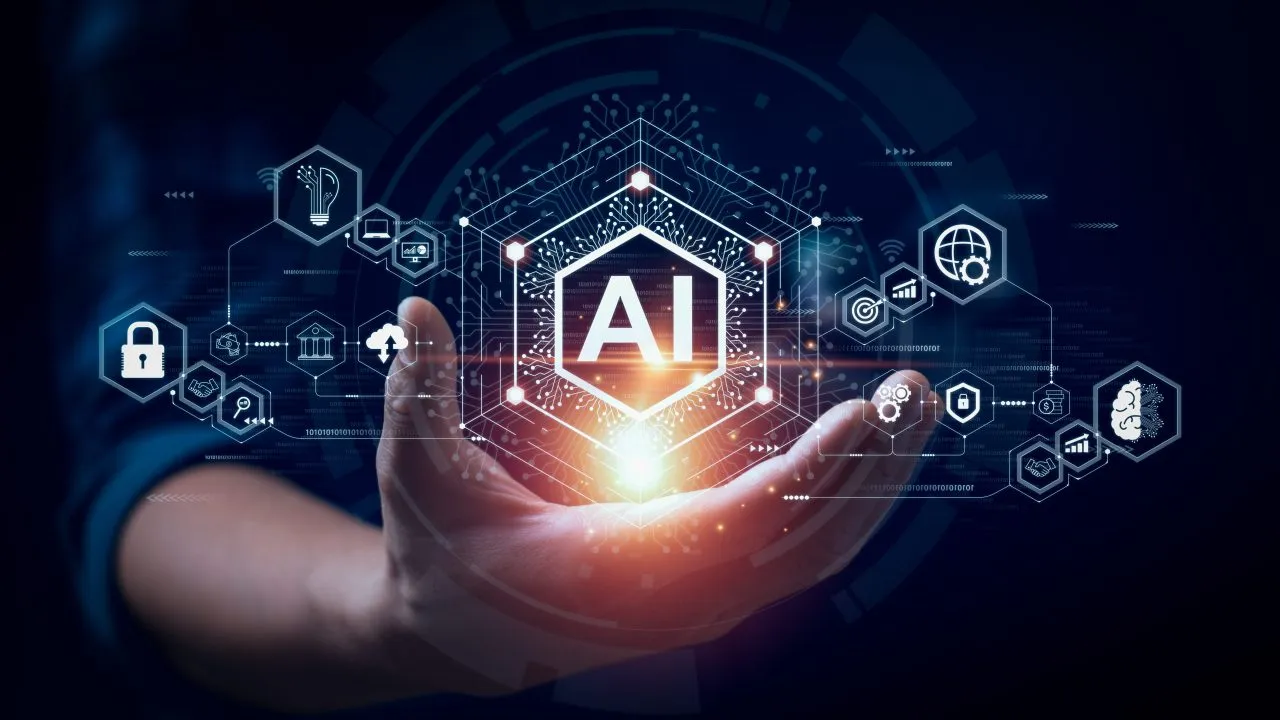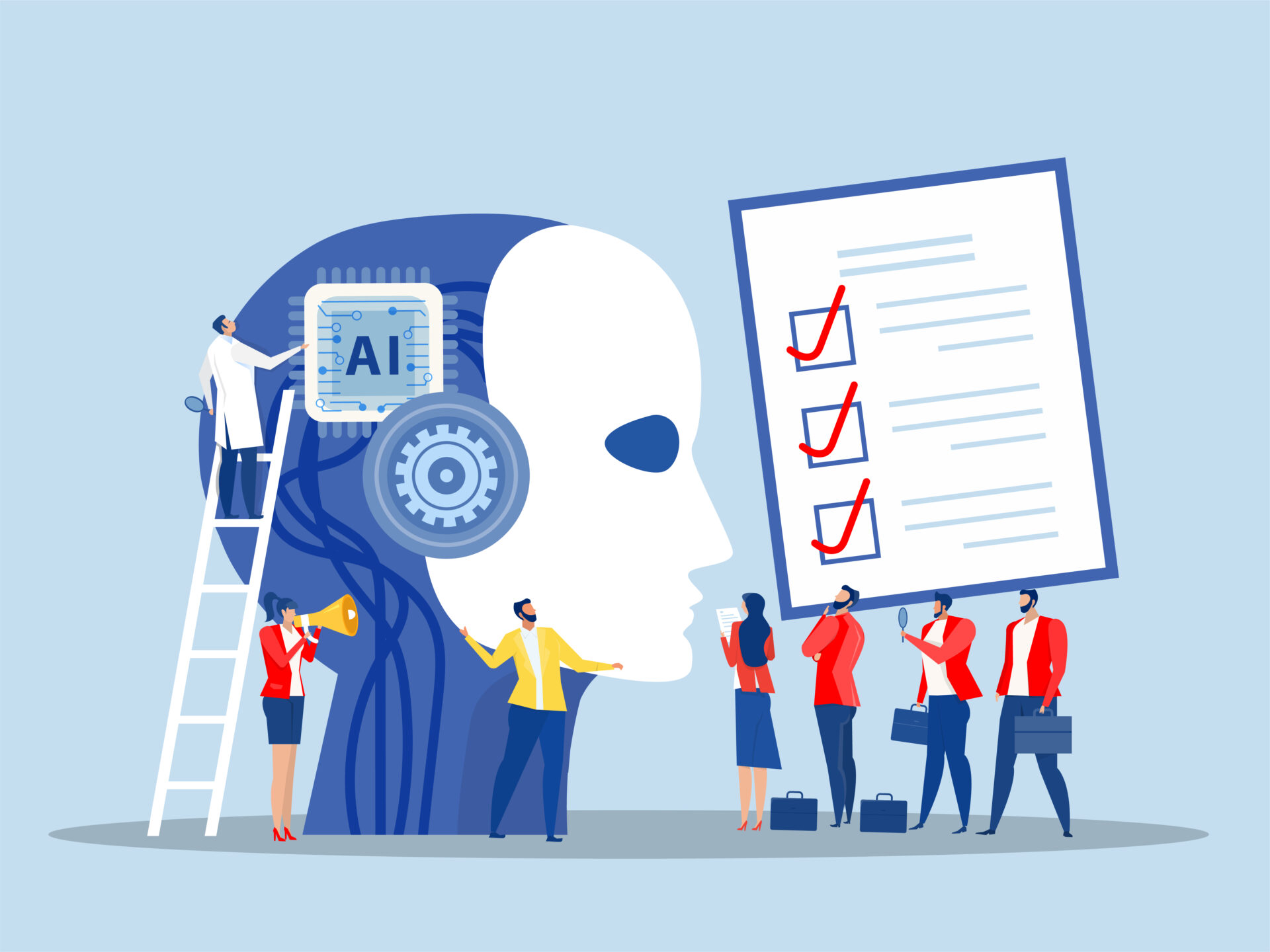
Tebeau Group, LLC predicts another Blockbuster/Netflix-like disaster for companies refusing to invest in AI.
Market research data suggests that 70% of executives believe not adopting AI will severely impact their company’s ability to compete in the market. This sentiment is driving many organizations to prioritize AI integration.
In a rapidly evolving technological landscape, CEO Johnathan Tebeau has issued a stark warning: companies that fail to embrace artificial intelligence (AI) are heading towards a ‘doomsday’ scenario. But what exactly does this mean, and how can businesses avoid this fate? Tebeau not only highlights the risks but also shares his insights on leveraging AI effectively.
Our prediction is rooted in the accelerating pace of AI development and its transformative impact on industries. Johnathan Tebeau argues that companies ignoring AI are akin to those that dismissed the internet in the 1990s. The consequences of such oversight are dire: loss of competitive edge, inefficiency, and eventual obsolescence. According to Tebeau, the ‘doomsday’ scenario involves businesses being outpaced by more agile, AI-driven competitors, leading to significant market share loss and, ultimately, failure.
The Power of AI
AI’s potential to revolutionize business operations is immense. By automating mundane tasks and providing deep insights through data analysis, AI can significantly enhance productivity, reduce costs, and drive innovation. Tebeau emphasizes that AI is not designed to replace human capabilities but to augment them. By taking over repetitive tasks and offering valuable insights, AI enables people to concentrate on more strategic and creative aspects of their work.
Since early 2022, Tebeau Group has adopted AI tooling and clear usage guidelines. This strategic move has yielded remarkable results. We’ve measured a 35% increase in our productivity and a 25% reduction in our operational costs since January 2024.
Market Research Insights
Recent market research underscores the urgency of AI adoption. According to a 2025 market research trends report, nearly 60% of researchers say their organizations depend more on AI-powered insights today than a year ago. This shift highlights the growing importance of AI in strategic decision-making. Additionally, companies that have not integrated AI into their operations report slower growth and reduced market share.
The Key to Effective AI Use
- Start Small, Scale Fast: Begin with pilot projects that address specific business challenges. This approach allows companies to learn and adapt without significant upfront investment. Once successful, these projects can be scaled rapidly.
- Invest in Talent: Building a team with the right skills is crucial. This includes not only data scientists and AI specialists but also domain experts who understand the business context.
- Focus on Data: High-quality data is the backbone of any AI initiative. Companies must invest in data collection, cleaning, and management to ensure their AI models are accurate and reliable.
- Integrate AI into Business Processes: AI should not be an isolated initiative. It needs to be integrated into the core business processes to drive real value. This requires a cultural shift and buy-in from all levels of the organization.
- Ethical Considerations: Tebeau stresses the importance of ethical AI use. Companies must ensure their AI systems are transparent, fair, and respect user privacy. This not only builds trust but also mitigates legal and reputational risks.
AI in Action: Real-World Use Cases
Generative AI (GenAI) is transforming workplaces across various industries by enhancing productivity, innovation, and decision-making. Here are some compelling use cases for GenAI in the workplace:
- Customer Service: GenAI can power chatbots and virtual assistants to handle customer inquiries, provide personalized recommendations, and resolve issues quickly. This not only improves customer satisfaction but also frees up human agents to handle more complex tasks.
- Content Creation: GenAI tools can generate high-quality content, such as blog posts, marketing copy, and social media updates. This helps marketing teams produce content more efficiently and maintain a consistent brand voice.
- Data Analysis: GenAI can analyze large datasets to uncover insights and trends that might be missed by traditional methods. This is particularly useful in fields like finance, healthcare, and market research, where data-driven decisions are crucial.
- Software Development: GenAI can assist in writing and debugging code, automating repetitive tasks, and generating documentation. This accelerates the development process and helps maintain high-quality software.
- Employee Training and Development: GenAI can create personalized training programs and simulate real-world scenarios for employee development. This ensures that employees receive relevant and effective training tailored to their needs.
- Creative Ideation: GenAI can assist in brainstorming sessions by generating new ideas and concepts. This is particularly valuable in industries like advertising, design, and entertainment, where creativity is key.
- Cybersecurity: GenAI can enhance cybersecurity measures by identifying potential threats and vulnerabilities in real-time. It can also automate responses to common security incidents, reducing the risk of breaches.
- Document Processing: GenAI can automate the processing of large volumes of documents, such as contracts, invoices, and reports. This reduces manual effort and speeds up workflows, allowing employees to focus on more strategic tasks.
- Human Resources: GenAI can streamline HR processes, such as resume screening, employee onboarding, and performance evaluations. This improves efficiency and ensures a better match between candidates and job roles.
- Product Development: GenAI can assist in the design and testing of new products by simulating different scenarios and predicting outcomes. This accelerates the innovation cycle and helps bring products to market faster.
Conclusion
The warning signs are clear: the future belongs to those who embrace AI. Companies that fail to do so risk falling behind in an increasingly competitive market. However, by following Tebeau’s strategies, businesses can not only survive but thrive in the AI-driven future. The key is to start now, invest wisely, and integrate AI into the very fabric of the organization. The ‘doomsday’ scenario is avoidable, but only for those willing to adapt and innovate.
Unlock the Future of Your Business with AI in 2025!
As we step into the new year, the integration of AI into the workplace is no longer a luxury—it’s a necessity. Companies that embrace AI strategies today will lead the market tomorrow. Don’t get left behind. Start your AI journey now and transform your business operations, enhance productivity, and drive innovation.
We’d love to chat with you if you’re interested in adopting AI in your workplace in 2025.
Article Market Research Data Sources:



